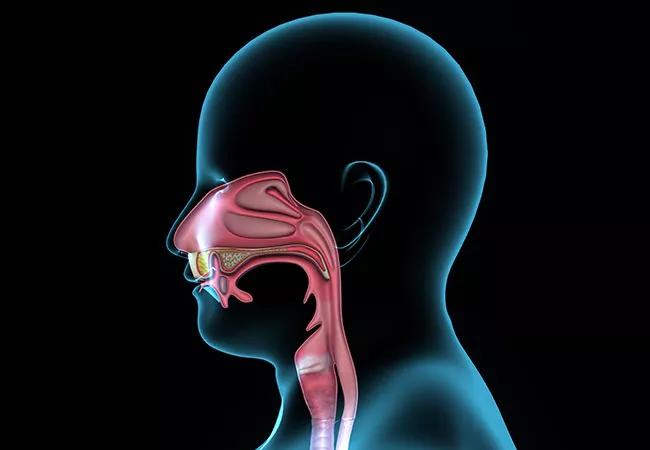The Short Answer from an otolaryngologist

Image content: This image is available to view online.
View image online (https://assets.clevelandclinic.org/transform/588c2b92-6c4c-4918-ad39-e2f1ba76e690/Post-Nasal-Drip_jpg)
Postnasal Drip: Can It Really Make You Queasy?
A: Our bodies make a fair amount of mucus and saliva. These fluids drain from our nose, mouth and sinuses into our throat, and help to lubricate it. We are typically unaware of this “drip,” and normal throat drainage does not make us feel queasy.
Advertisement
Cleveland Clinic is a non-profit academic medical center. Advertising on our site helps support our mission. We do not endorse non-Cleveland Clinic products or services. Policy
However, certain conditions increase throat drainage and may cause queasiness, including:
What’s often overlooked is that conditions which inflame or irritate the throat — such as sore throat and sometimes acid reflux — simply make us aware of normal drainage. If swallowing food or drink becomes difficult, drainage can take longer to go down and therefore becomes bothersome.
Certain medications can also change the character of the drainage, heightening our awareness of it. And irritating fumes and spicy foods can trigger increased mucous flow.
Otolaryngologist Tom Abelson, MD
Advertisement

Delivered every Tuesday!
Sign up for our Health Essentials emails for expert guidance on nutrition, fitness, sleep, skin care and more
It's a letter about the news!

Every two weeks once
Sign up for our Health Essentials emails for expert guidance on nutrition, fitness, sleep, skin care and more.
Learn more about our editorial process.
Advertisement
Give it seven to 10 days, but if your symptoms linger or get worse, it’s time to see a healthcare provider
How to deal with this common condition
Here’s one TikTok trend you shouldn’t try
Some things you can do to ease symptoms
Reduce unnecessary antibiotics to help your immune system
Decoding which is which
Most recommended precautions center around minimizing bruising or swelling
Type 2 diabetes isn’t inevitable with these dietary changes
Applying a hot or cold compress can help with pain
Pump up your iron intake with foods like tuna, tofu and turkey